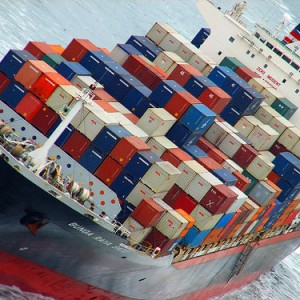Are Carriers, Imposing Emergency Bunker Surcharges, Really Cartels?
 Fuel costs have significantly increased this year, causing many carriers to post first-quarter losses for 2018.
Fuel costs have significantly increased this year, causing many carriers to post first-quarter losses for 2018.
At least, carriers are saying higher fuel bunker prices are the cause of the financial losses, although shippers know carriers already struggle with profitability in the international shipping industry.
Fuel prices have certainly risen this year, causing more carrier struggles; however, when top carriers in ocean shipping announced emergency bunker surcharges almost simultaneously, shippers shouted collusion and unfair business practices.
Actually, shippers are using stronger words than those. Global Shippers Forum (GSF), which represents shippers’ interests and that of organizations around the world, calls the emergency bunker surcharges “an unwelcome legacy of the cartel era” that have “no place in a modern liner shipping market”.
In the media statement that includes those above strong words, GSF posted:
Chris Welsh, Secretary General of the Global Shippers’ Forum (GSF) believes this move is an indictment on the liner shipping industry that, a decade since the abolition of the liner conference system in October 2008, the container industry is still using conference-style pricing methods to impose surcharges on its customers.
GSF doesn’t mince words in accusing carriers of collusion. The word cartel, which GSF uses right in the media statement’s headline, even brings images of gangsters, violence, and drugs to many minds. Of course, a cartel in no way needs to involve guns or drugs. The Oxford Dictionary defines a cartel as “an association of manufacturers or suppliers with the purpose of maintaining prices at a high level and restricting competition.”
And that definition is exactly what shippers worry is happening with ocean carriers.
Shippers have had plenty of reason to worry about carriers acting as cartels in recent years. There are carrier alliances dominating the industry, carrier mergers and buyouts, actual collusion investigations into the major carriers, and many carriers being found guilty of breaking antitrust laws in the RoRo sector of international shipping. Handy Shipping Guide just posted another story last week on antitrust fines levied against carriers — including K Line, MOL, and NYK.
It’s enough to see why GSF would call this time in international shipping the cartel era.
But GSF goes beyond saying there’s collusion. GSF points out that most of these emergency bunker surcharges are in addition to bunker surcharges that already exist from the carriers and Chris Welsh is quoted in the statement as saying:
“Container ship operators need to ‘fess-up’ by taking responsibility and greater control of their costs,” he says, “rather than announcing vaguely explained short-notice unrecoverable surcharge costs on customers.”
GSF is not alone in saying it is not because of higher fuel costs carriers, including CMA CGM and Maersk, suffered financial loss and are imposing emergency bunker surcharges. Maritime research, consulting, and financial advisory company Drewry seems to agree.
Carriers’ own failure to control costs, not rising oil and bunker prices, are the cause of the controversial emergency bunker surcharges recently announced by the world’s top three box carriers, Drewry has suggested.
“After half a century of doing business, lines should by now have a workable system to deal with increases in external costs like fuel and not have to impose new surcharges,” the consultancy said.
Indeed, Drewry says BAF mechanisms in-place today were established when fuels costs were much higher, so in theory should still wok with today’s relatively lower prices.
…
“Carriers’ own failure to control costs has left them exposed to the rapidly rising fuel prices. Emergency BAFs are a desperate move that will only partially compensate them and at the same time alienate small and medium shippers,” the consultancy said.
And alienate shippers it certainly has.
The GSF media statement demands transparency from carriers with explanation and evidence that bunker surcharges are necessary before going on with the following paragraphs that rail against the use of emergency bunker surcharges.
“The imposition of emergency surcharges has no place in a modern liner shipping market where costs and prices should be mutually agreed between customers and suppliers, preferably in mutually agreed service contracts,” he continues. “Such arrangements enable the parties to build long term business partnerships, as well as providing clarity on the terms and conditions for the services provided and for appropriate remuneration.
“The use of emergency surcharges is a none too subtle attempt to impose non-negotiable charges on customers. The liner industry needs to employ more appropriate pricing arrangements, in conjunction with its customers, if it is serious about developing partnership approaches and improving individual customer-supplier relationships.”
For an idea of price hikes being imposed through these emergency bunker surcharges, Maersk is charging $60 per TEU or $120 per FEU and CMA CGM is charging $55 per TEU or $110 per FEU. These charges are not supposed to hit U.S. shippers, where the industry is regulated by the Federal Maritime Commission until July 1st.




